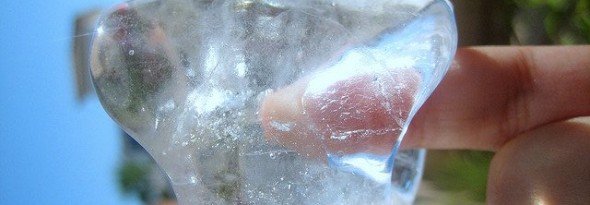We’ve seen it in movies, on TV and even in real life. It can be just an embarrassing situation or it can turn into something really painful. Here is the question: Why do the tongue and the skin get stuck on ice? The ITV-Ice Makers blog brings you the answer.
If you have experienced this in the street, with a streetlight pole or with an ice block, the experience can be disgusting. Nevertheless you are more likely to have experienced your tongue stuck on ice at home or at a restaurant with the ice cubes from a drink. You can even experience it with your fingers when serving the ice cubes. The very skin can act as a temporary adhesive.
This phenomenon is produced because, commonly, our skin has a thin and imperceptible layer of water vapour, produced by moisture and sweat, which is responsible for getting us stuck on ice. In the case of the tongue, moisture is produced by salivation. To soften this problem, the best solution is to count on the state-of-the-art machines produced by ITV-Ice Makers and to avoid using the common freezer.
Dry ice is always guilty for getting us stuck on it. A typical example is an ice cream or an ice cube we take out from a home freezer at -18°C and a very dry environment. When it gets in contact with our skin, at 37°C, the water and vapour layers freeze right away and shortly, which is what gets us stuck. After a while, room temperature and our skin temperature melt the ice and we are released.
In case of emergency and when this happens in a colder environment and tongue and skin won’t get released, this are the steps to be followed:
- Try to release it carefully after waiting for some minutes for the temperature to balance.
- If you cannot get released, you can pour warm water so that it doesn’t freeze.
- If the previous step is not possible due to cold temperatures, try to generate heat:a scarf, a piece of cloth, a pair of gloves or covering your hands with your sleeves. Then rub close to the tongue for obtaining heat and being able to melt the ice.
- If you have been stuck for too much time, ask your chemist or your doctor for possible damage to the skin.




